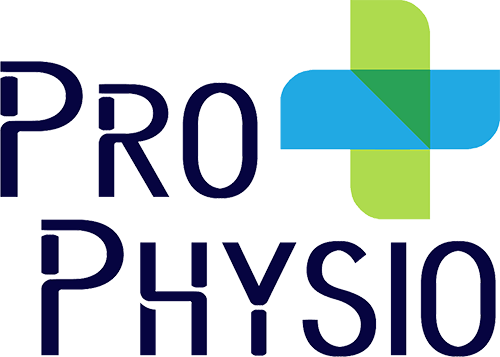Matthew Walker, professor of neuroscience and psychology at the university of California, Berkeley treats sleep as importantly, if not more so, than any other aspect of his health.
You may have heard it before;
“Make sure you get your 6-8 hours of sleep!”
or
“Shut those screens before you go to bed”
But the real question is, why?
In his book, “Why we sleep?”, Walker unpacks the benefits and detriments of our sleeping habits and outlines what we can do to get the most out of our sleep.
In particular, he touches on how this can impact the athletic population.
“Sleep is the best legal performance enhancing drug that most people are probably neglecting in sport.”
Imagine training day in, day out in the lead up to a big event then having all your hard work undone due to a bad night’s rest.
Those who get 6 hours or less of sleep fatigue 30% quicker (Copenhaver & Diamond, 2017)!
You can spend your time training for a 10 round fight, but if you were to sleep 6 hours or less, you will now be physically exhausted by round 7 rather than round 10!

“Practice is not what makes perfect, practice with a night of sleep is what makes perfect.”
Apart from physical exhaustion, other parameters of performance also decreased significantly with those who repeatedly had less than 6 hours of sleep.
Your peak muscle strength, your physical vertical jump height and peak running speed all correlate with sleep. The less you have, the worse those outcomes were.
So, now you know all the risks, what can we do about it?
The ideal number we should aim for is 7-9 hours in order for the body to regulate physiological processes and lower our chance of adverse health outcomes including weight gain, hypertension and diabetes to name a few (Kitamura et al., 2016).
Although, it is important to note that this is a rough guide and individual variability in sleep need is influenced by genetic, behavioral, medical, and environmental factors (Watson et al., 2015).

Dark & Cool Principles
Below are simple strategies you can use to improve your sleep quality.
Keep it Dark
Scrolling through this blog right before you head to bed is counterproductive to your sleep quality.
Blue light from screens or even a bedside lamp can reduce melatonin levels by up to 50% (Tähkämö, Partonen & Pesonen, 2018).
Melatonin is the hormone that regulates your sleep-wake cycle and will essentially help you fall asleep. Therefore, ensuring these hormone levels aren’t affected prior to dozing off is essential to a good night’s rest.
Tips –
Download a blue light blocking app on your device or search this feature within your settings.
Certain devices come with blue-light blocking features pre-installed.Invest in blue-light blocking glasses.
These can be used to filter out the blue light especially if you are required to work long into the night.
Change lamp light bulbs to warmer light.
Sleep with an eye-mask to minimize light exposure in the early morning.

Keep it Cool
As the body prepares for sleep, dilation of blood vessels in the skin facilitates heat loss, producing an important signal for sleep onset – a decrease in core body temperature.
In particular, heat loss from your hands and feet helps to cool the core in the evening and the early morning. Once core body temperature drops to produce sleep onset, it remains low throughout the night and rises again shortly before awakening (Obradovich, Migliorini, Mednick & Fowler, 2017).
You may find that during the warmer months you have difficulty sleeping as your body is hindered from shedding it’s core body temperature.
Tips
- Cool your room before sleeping as ambient room temperatures can interrupt the normal physiology of sleep
- Shower before sleeping. As you shower your core body temperature increases then decreases naturally after your shower. This passive process enhances body heat dissipation to aid in decreasing your core body temperature (Haghayegh, Khoshnevis, Smolensky, Diller & Castriotta, 2019).

There you have it guys, I hope this resource has provided you with simple strategies to implement into your bedtime routine.
Till next time!
#MakingHealthySimple
References
Copenhaver, E., & Diamond, A. (2017). The Value of Sleep on Athletic Performance, Injury, and Recovery in the Young Athlete. Pediatric Annals, 46(3), e106-e111. doi: 10.3928/19382359-20170221-01
Haghayegh, S., Khoshnevis, S., Smolensky, M., Diller, K., & Castriotta, R. (2019). Before-bedtime passive body heating by warm shower or bath to improve sleep: A systematic review and meta-analysis. Sleep Medicine Reviews, 46, 124-135. doi: 10.1016/j.smrv.2019.04.008
Kitamura, S., Katayose, Y., Nakazaki, K., Motomura, Y., Oba, K., & Katsunuma, R. et al. (2016). Estimating individual optimal sleep duration and potential sleep debt. Scientific Reports, 6(1). doi: 10.1038/srep35812
Obradovich, N., Migliorini, R., Mednick, S., & Fowler, J. (2017). Nighttime temperature and human sleep loss in a changing climate. Science Advances, 3(5), e1601555. doi: 10.1126/sciadv.1601555
Tähkämö, L., Partonen, T., & Pesonen, A. (2018). Systematic review of light exposure impact on human circadian rhythm. Chronobiology International, 36(2), 151-170. doi: 10.1080/07420528.2018.1527773
Watson, N., Badr, M., Belenky, G., Bliwise, D., Buxton, O., & Buysse, D. et al. (2015). Recommended Amount of Sleep for a Healthy Adult: A Joint Consensus Statement of the American Academy of Sleep Medicine and Sleep Research Society. SLEEP. doi: 10.5665/sleep.4716

